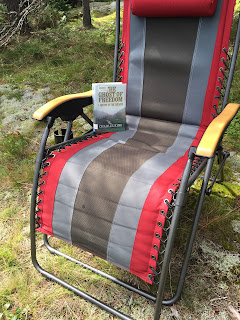"The mountains are full of free and ungoverned people..."
-Gen. Alexei Petrovich Ermolov
But there were various attempts to clamp down on that, including by a certain Russian General Ermolov in the early 1800s...Continuing my reading of Charles King's back catalog and my voyage this year round the Black Sea, I got his book of 2008 from the library. It's another fascinating study.
It's a meeting place of continents and languages. In Arabic it's referred to as djabal al-alsun, the mountain of languages, and it's home to a half-dozen (or more, depending how you count) language families, of which Indo-Europenan is only one. Turkic and Semitic languages are widely spoken. And there are three language families indigenous to the area as well: Kartvelian (the best known of which is Georgian); Caspian (including the Chechen language) and Northwest Caucasian.
It's also the meeting ground of empires. The frontiers of Persia, of the Ottomans, and of Russian collide in the Caucasus. King's book really only starts in the 1700s, as Peter the Great tries to expand Russia into the area. By then the Persians and even the Ottomans are weakening, and it's mostly a story of Russian expansion. But 'imperialists are congenital optimists' as King says, and it wasn't an easy progress as the locals attempted to remain a 'free and ungoverned people', at least ungoverned by outsiders.
One of the themes King emphasizes is how the region functioned in Russian identity. Before Siberia it was their wild west, and is important in their writing to Pushkin (his The Captive of the Caucasus provides King his title), to Lermontov (A Hero of Our Time), and to Tolstoy (Hadji Murad, among other works). Pushkin's view remains fairly romanticized, according to King; Lermontov and Tolstoy are more realistic.
It's not just the Russians who have fanciful images of the Caucasus. The Russian tsar sends German scholars into the Caucasus; one of the questions he wants to know are the Circassian women as beautiful as they're reported to be. But so does Woodrow Wilson (!) want to know that. In the 19th century Circassian beauties were a regular feature of P. T. Barnum's (and others') expositions. (Though King says they were generally Irish girls with their hair frizzed.)
King tells the story of Jan Saremba, a Pole who fought against the Russians in his homeland. After the fall of Warsaw, he was drafted into the Russian army and sent to fight in the Caucasus. He and a group of Poles decided to cross over into the Ottoman lines, and join up to fight Russians instead of serving them, but the Ottomans sell them into slavery instead. Saremba eventually escapes, takes refuge with the French consul in Trebizond, marries a Greek woman, and later leads tours of the Caucasus, and it's through that he becomes known. But on other occasions Russians complain the forces ranged against them shout their battle cries in Polish.
In the aftermath of the Bolshevik revolution and World War I, the Caucasus is united into TransCaucasian State, but it breaks down pretty quickly into three countries Georgia, Armenia, and Azerbaijan. All three of those countries are gone by 1922, reabsorbed into the Soviet Union, only to reemerge after the collapse of the USSR. King ends with the wars that follow; the Second Chechen War still going on as he was writing the book, though by then winding down.
All in all, a pretty fascinating read and a good introduction to the area.
There are four countries from Gilion's list that occupy the Caucasus today: Russia, Georgia, Armenia, and Azerbaijan. (There are some other places that claim to be countries, but aren't widely recognized.) Azerbaijan seems to me the one I'm least likely to read another book from, and it's a country I've never covered in my years of doing the European Reading Challenge. So today's visit is to Azerbaijan!
I read the book in a place I couldn't obsess over the news:
If I was sitting in that chair and looking out...




I don't know much about this part of the world. This book does sound fascinating. I'll have to put it on my nonfiction TBR list. :)
ReplyDeleteIf you're at all interested in the area, I find him pretty readable.
Delete